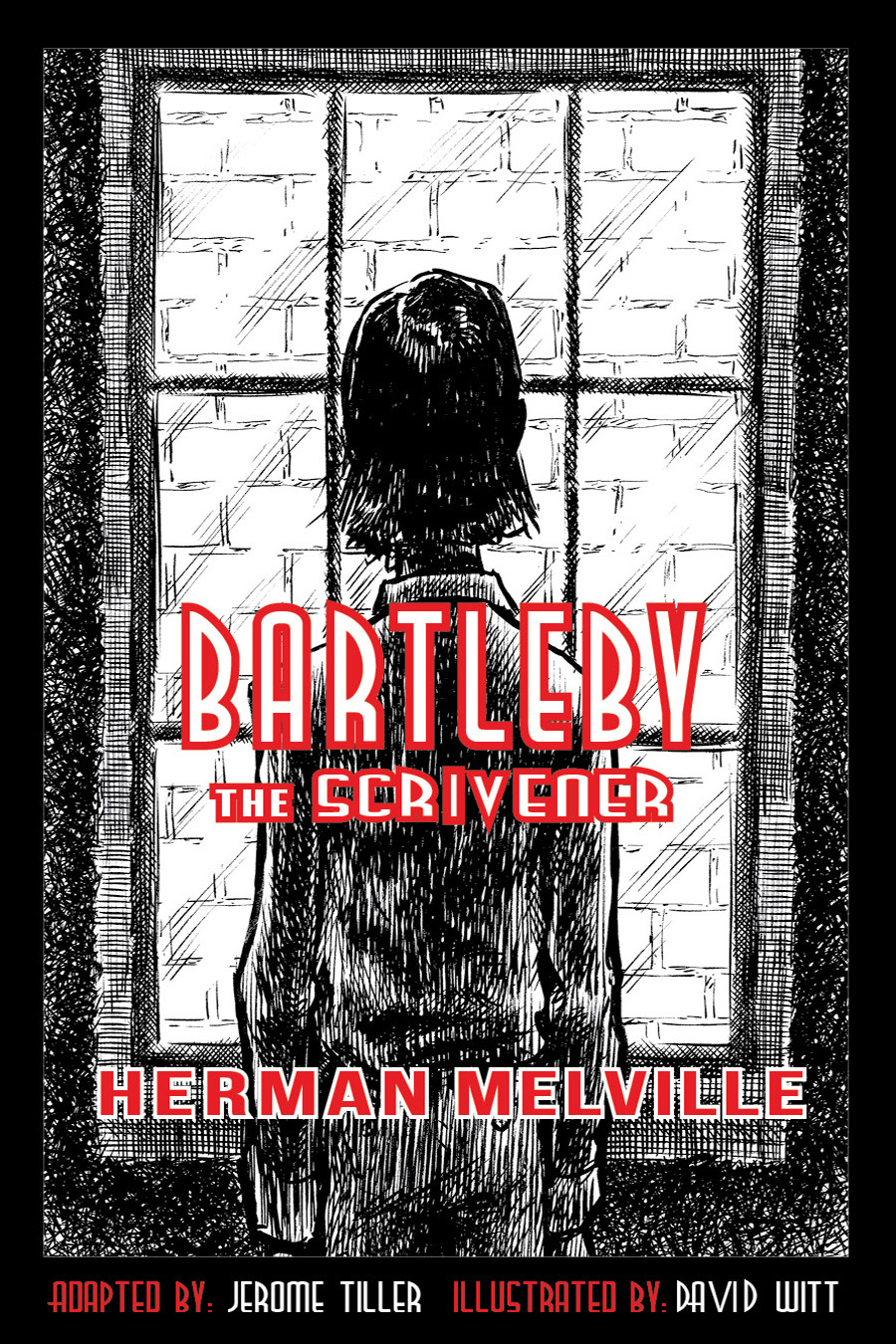Herman Melville
Had Bartleby scriven too much and to no equitable avail?

Politicians. They are a curious kind of people.They disagree so absolutely about all this and all that, just as if each had some sort of a table or algorithm by which they figure things out, yet they always allow one root belief to govern their ultimate decisions no matter what topic is up for debate—common people are deservedly stuck where they are because they haven’t accomplished anything uncommon. So while Bartleby was said to have a high capacity to produce legible and accurate copy, he was basically just another scrivener—-laborer—and thus not special in any real way. He was utterly common, unlike the mavens and titans who managed the money on Wall Street where he was briefly employed, and being common, was utterly expendable (although his employer undoubtedly did have a heart).
The Old Lawyer - Bartleby's Main Character

Almost all analyses of the story Bartleby the Scrivener by Herman Melville center on the psychological traits of Bartleby. Nevertheless, despite the long-standing and ongoing fascination with Bartleby, it's impossible to ignore that his employer, the old lawyer and the narrator of the story, is actually the story’s main character. You could even say the lawyer was the first entity to unsuccessfully analyze the strange man he had hired to perform work the man repeatedly prefers not to do. While doing so, the lawyer models the extreme patience all readers need when attempting to do their own analysis of an inscrutable character who somehow demands to be comprehended. Beyond his patience, however, and much more importantly, the nameless old lawyer models overarching solicitude for a person he could never understand in the least.
Bartleby and Individualism

Bartleby was an individualist who was hired to copy law documents and to model a calm demeanor that hopefully his co-workers would emulate. Bartleby calmly did these things very well, but only briefly, for he quickly preferred not to copy law documents and, being an individualist who acted in line with his preferences, he would not. Bartleby was seemingly endowed with his calm demeanor and evidently always conformed with this gift, probably by not preferring to be anybody but himself, for his calm demeanor never varied. Yet that quality proved entirely worthless to his employer—it lost all its modeling value when Bartleby refused to work.
The Melville/Gandhi Connection

There is no evidence to support Ernesto Hermeteby’s speculative musings in his recent blog regarding a Melville/Gandhi connection. Granted, at no point does he suggest there is evidence. But then why did he speculate about it? Is it because he thinks our recent changing-of-the guard demands Bartleby-style non-cooperation? Hermeteby does concede that, when Melville’s Bartleby devolved from limited consumption of food to total non-consumption, he had taken his negative preferences more than a little bit too far. So was he was suggesting that non-cooperation with things as they currently are could potentially go too far? And would 'going real, real far' be a risk Hermeteby would be willing to take? I mean, given present circumstances?
Who did Gandhi imitate?

It don’t make no sense most ways, I admit, but you can’t ignore the evidence neither. Could the one and only Mahatma Gandhi have been influenced by a character he experienced around the same time that its creator, the author who made-up that character, was getting rediscovered by literary geeks in 1915, some fifty years after that author died broke, him being dead all that long before he finally became famous, as he now is and will forever remain, that author being Mr. Herman Melville? Furthermore, could this rediscovery of Melville just coincidently happen about the same time the redoubtable Mohandus Mahatma Gandhi was just beginning to be a non-cooperating social justice activist and these be just two incidental happenstances with nothing whatsoever that links them? I suppose so, but who knows? Read on.
Bartleby Puzzles Critics

Unsurprisingly, when critics reach their conclusions about literary works, they do not always agree on the meaning of the most challenging literature, which would include Bartleby the Scrivener, a story that requires deeply penetrating discernment powers. For decades all critics worth their salt have wondered (and some have incessantly) what Herman Melville meant to say when he created Bartleby the Scrivener. And that includes avid readers (i.e.; amateur critics) like me.
Bartleby the Scrivener
Bartleby the Scrivener is the most popular and widely analyzed of Herman Melville’s short fiction. The story, set in a law office on Wall Street, is told by an elderly lawyer who employs two copyists, or ‘scriveners’. Their job is to copy out legal documents by hand. When the lawyer decides he needs a third scrivener, he hires Bartleby, mainly because he thinks his calm demeanor will provide a good example for the other two, whose eccentric personalities were creating havoc in the workplace. However, Bartleby soon proves to be the worst workplace model ever when he refuses to do any of the work the lawyer assigns him. And so it goes, on and on and far beyond, in what is one of the most mysterious and thought-provoking stories ever written.


